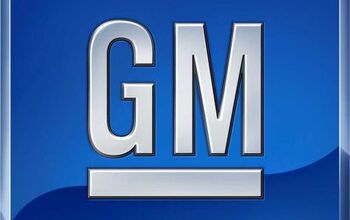Ford Pulls In $2.08 Billion Q1 Profit
The Ford Motor Company released its first quarter earnings today [Full report here, Slide presentation here (both PDF)], revealing that it gained over $2b in net profit on rising revenue and improved operating margins. Sales receipts rose to over $28b, and with each of Ford’s regional units posted operating profits, Ford’s gross automotive cash rose by $400m to $25.3b (although operating cash flow was $100m in the red). North American operations earned $1.2b in pre-tax operating profit, South America earned $203m, Europe recorded $107m and Asia-Pacific-Africa brought in $23m. Ford Credit racked up $828 in pre-tax profits, as lower depreciation levels improved results. Despite these fine results, Ford finished the quarter with $34.3b in automotive debt, a $700m increase from the beginning of the year. Ford paid $492m in interest on that debt in the first quarter.
It would be unwise to think of the $2 billion as a running rate for the year
Ultimately though, Ford’s sales are up, and results are improving across the company’s global operations, meaning Booth still expects profits, albeit smaller ones, this year. And Ford isn’t trying to hide its optimism, increasing production goals by 30k units in the second quarter. Meanwhile, with 45 cents per share in earnings, Ford’s Q1 results beat Wall Street’s expectations, meaning the company’s stock should stay buoyant. Right now, that’s about all an automaker can ask for.
More by Edward Niedermeyer
Latest Car Reviews
Read moreLatest Product Reviews
Read moreRecent Comments
- MaintenanceCosts 308/311 is just the rating of the gas engine by itself. The full powertrain power rating, taking into account both power sources is 483/479. The car will do 0-60 in under five seconds. Frankly, I find the idea of that being "underpowered" bizarre.Also, "understated" has never been less fashionable within my lifetime. We are in a moment where everyone wants to make a Bold Statement with everything they do.
- 28-Cars-Later @PoskySo here's some interesting data, Manheim's Used Car index is still 28% higher than shortly before the Plandemic (155 on chart) after declining from a height of 39% (roughly 215) in January 2022, yet interest rates are now more than double on average. Maybe the White House should focus on some deflationomics instead of mucking up everything?
- Dale Had one. The only car I ever bought because of a review in a guitar magazine.Sure was roomy inside for such a small car. Super practical. Not much fun to drive even with a manual.Sent it to college with my stepson where it got sideswiped. Later he traded it in on an F-150.
- Bd2 Hyundai's designs are indeed among the most innovative and their battery technologies should allow class leading fuel consumption. Smartstream hybrids are extremely reliable.
- 28-Cars-Later So now H/K motors will last longer in between scheduled replacements. Wow, actual progress.


































Comments
Join the conversation
Why did Ford stock take a dive today on the news that profits were higher than Wall Street projected? It also seems that anybody who is paying attention can identify Ford as the healthiest automaker despite all of the money pumped into Chrysler and GM by the government. Just shows you what a game of chance the stock market has become. p.s. Imagine Ford receiving half of the funding that GM got from the feds. How much debt would they be carrying then? Just a thought, but rather than throwing money down a rat hole, investing it in America, whatever you want to call it, where would the US auto manufacturing sector be if that money had been used to bolster the one auto manufacturer that showed any sign of "getting it" and changing the way they were doing business over a year ago?
I bought a cumulative 3000 shares in a few different lots during October of 2008. All the lots were in the low $2 range. I did this inside of an IRA. Just as you guys wish you had bought *some*, I wish I had bought *more*. But hindsight is 20-20. At the time, the amount I invested was something I could afford to lose without it really impacting my retirement. I still have all the shares. I bought them with the intent of holding on to them for 10+ years. But they have appreciated so much that they are now a material part of my portfolio, which is making me rethink hanging on to them for the long term.